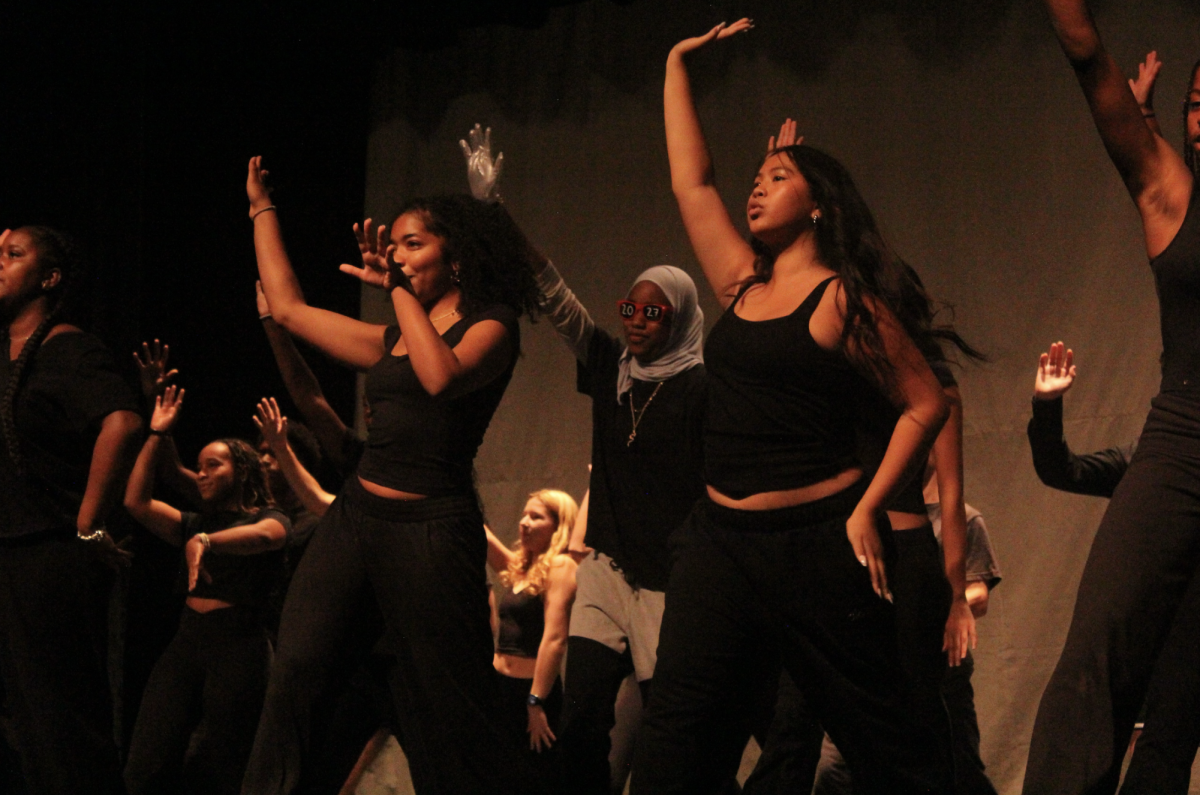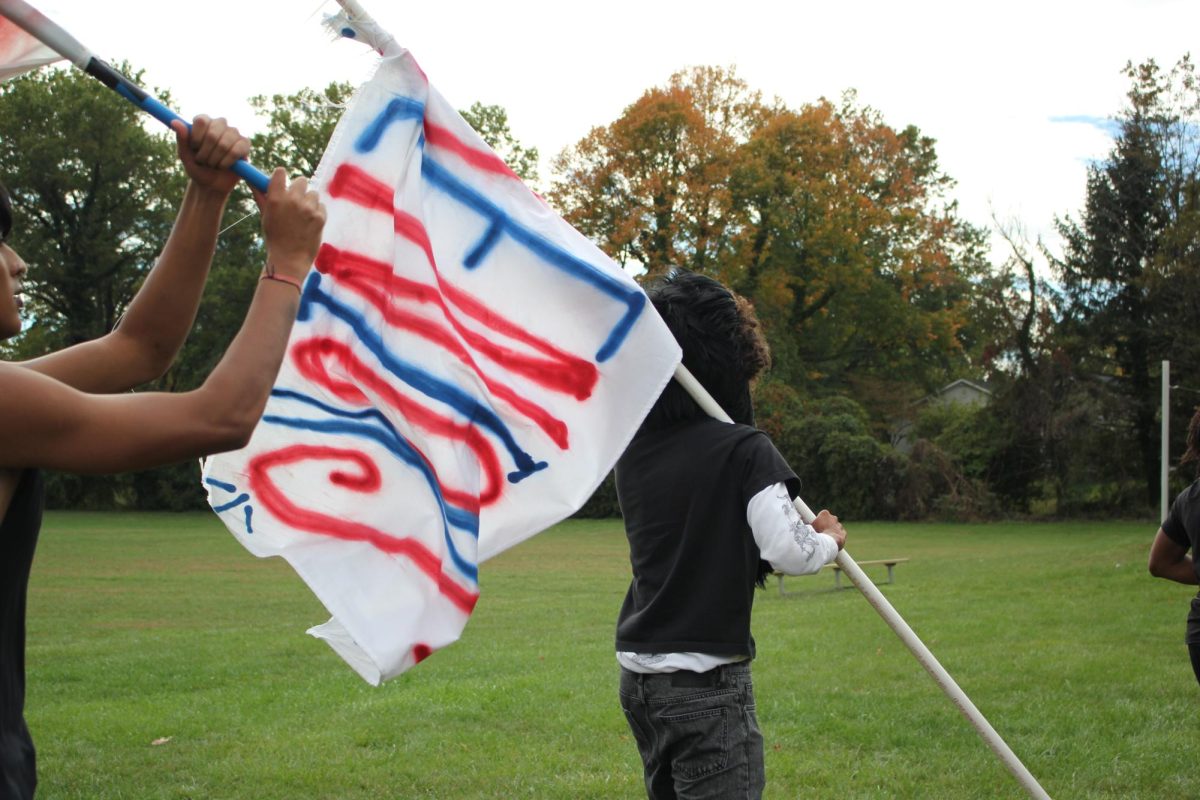A new scheduling system for Physical Education (PE), Health, Quakerism, Leadership and the Quaker Dimension (LQD), and World Religion is being put into effect in the 2025-2026 school year, allowing rising sophomores and juniors to add a sixth course to their schedule if they wish.
On Thursday, December 12, an email was sent out to the US detailing these changes for PE, Health, Quakerism, LQD, and World Religion. The classes meet during the same block and rotate each quarter.
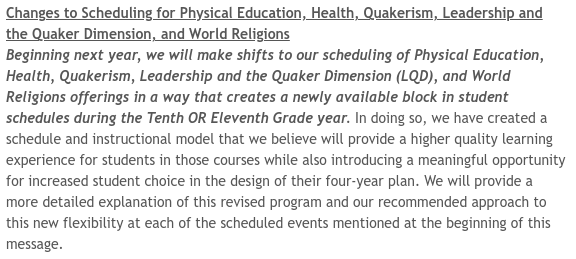
This allows tenth and eleventh grade students to have an entirely open block to use as a free period or as an additional major course. It is up to individual students’ choice whether they would like to take LQD, World Religion, and PE as a sophomore or junior, but they must complete all of those courses in one year.
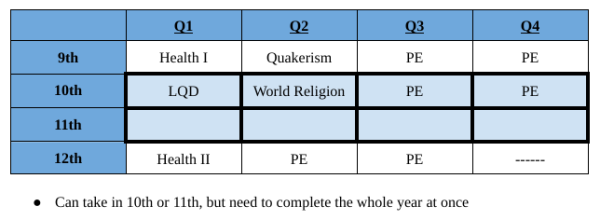
Currently, all these classes are required at some point over four years. As of this year, PE meets across all four years, Health meets for three years, and the rest of the classes meet for one year, respectively, with study halls/11th/12th free periods filling in the remaining gaps.
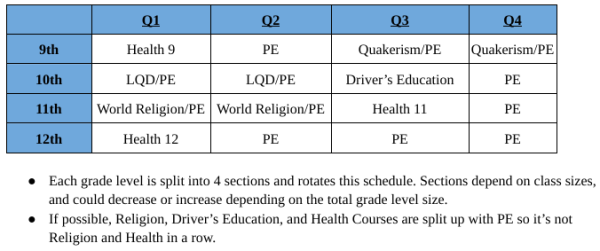
Starting in the Fall of 2025, Driver’s Education will be a minor course offered to sophomores, and enrollment opportunities will expand to the entire US as the minor course develops in subsequent years. As New Jersey requires students to pass a written examination to obtain a driving permit, this course allows students to take the examination at MFS instead of at the Motor Vehicle Commission (MVC).
Noah Rachlin, the Upper School Director and Interim PE/Health Department Chair, shared that this change has been in the works for at least two years.
“We started talking about this [scheduling change] in meetings with the PE/Health department, and then brought it to [the] Academic Council … [The] Academic Council actually approved this before the course request process last year,” said Rachlin. The Academic Council consists of the Associate Head of School, the Academic Dean, the Director of Teaching and Learning, the Division Directors, and the Department Chairs.
“But there were some other moving pieces and parts that we wanted to make sure that we knew about and had time to work through before we rolled this out. So we waited a full year to do some stuff and make sure that it was going to work from a staffing perspective.”
Rachlin attributed the change to two main goals that the PE/Health and Quaker/Religious Studies Departments have: maintaining momentum within the classes offered in that block and eliminating schedule confusion for students.
“The way that those classes were being scheduled … having three meetings every two weeks meant that it was pretty hard to maintain momentum. You’re kind of meeting in these one-off classes, versus when you meet seven times over two weeks, there’s a rhythm that you fall into and a momentum, and it’s easier, for example, to carry lessons across classes, or to have sustained work on a particular topic or the development of specific skills,” Rachlin said.
Days off from school, such as holidays and snow days, contribute to the infrequency with which students experience their courses.
“There was a sense that if we could actually concentrate those classes into a single quarter where it met every single time in the block, it would help the classes and the instructional experience in the class, because you knew you were going to have students in a more sustained way,” Rachlin said.
Rachlin expressed that this change would also resolve the question of “what class do I have?” by having one class per quarter.
“It would be a better experience for students, and it would eliminate some schedul[ing] challenges of just keeping track of ‘what class do I have? Is this? [Is it] the study hall one? Is this?’ … There’s so many things in that schedule block that we felt like if it changed on the quarter, as opposed to day to day, that would be a better experience for students,” Rachlin said.
Nicoletta Tedeschi ’27 shared that this change would help her manage her schedule more easily next year.
“Because our schedule is already confusing with the alternating weeks, the only way that I know what class I have is to check myMFS. However, this is pretty inconvenient sometimes because of my internet connection or if the site isn’t loading. I think that this new change will help me keep track of what class I have to go to,” Tedeschi said.
MS/US PE/Health Teacher Michael Brunswick shared a similar rationale as Rachlin, explaining how this scheduling change will “maximize continuity” in classes and offer students more choice in their education.
“It gives flexibility for students to explore different types of classes [and take a sixth major course if they wish]. I think it’s a win for the school,” he said.
Erick Cotter, another MS/US PE/Health Teacher and the teacher of Driver’s Education (a quarter-long requirement for sophomores), explained that the course had been under consideration for being moved to an optional minor course for the past several years.
“[The timing of the decision] just so happened to coincide with [the new scheduling system] … We will be offering it for both the Fall and the Spring [semesters]. So far, it looks like we have a decent amount of sign-ups,” he said.
“I just want to make sure that if families want their child to sign up for Driver’s Ed[ucation], they have access to it,” said Cotter. “That’s the main thing; I still want to keep it viable for students that are looking to get it done through school rather than having to take it outside of school.”
Olivia Arzu ’27, a rising junior, is planning to take a History Seminar during the new free block along with AP US History next year.
“I really enjoy the History Seminar options this year and want to use all of the resources I have. I’m really excited about the schedule change. I think it’s beneficial in helping kids feel less limited in their course selections, as choosing courses is already a stressful process,” said Arzu.
Emmie Huynh ’27 is another rising junior hoping to add another semester-long English course next year.
“I’ve always enjoyed English class, and it’s probably my favorite class at MFS … Junior year is going to be stressful, and it might sound crazy that I’m adding another class to my schedule, but it really isn’t about grades or how it might look on my transcript for me. It’s more the fact that it’s given me the opportunity to take a class and hope that I’ll be able to take two classes of English,” Huynh said.
Huynh expressed her gratitude toward the school for “allowing diversity inside our classes and giving more students opportunities to choose what they want to do.”



